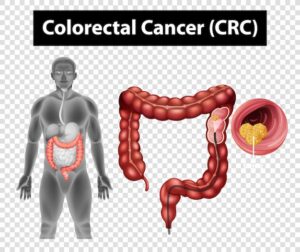
Introduction
Your gut does more than just digest food—it’s home to trillions of tiny organisms called the gut microbiome. These microorganisms, including bacteria and fungi, play a big role in keeping you healthy. They support your immune system, help with digestion, and even protect against diseases like colorectal cancer.
Colorectal cancer is one of the most common cancers worldwide. Understanding how your gut microbiome affects it is key to prevention. In this guide, we’ll explain how your gut health connects to cancer, ways to keep your gut healthy, and why consulting experts like a gastroenterologist in Surat can make a difference.
What Is the Gut Microbiome?
The gut microbiome is a mix of good and bad bacteria, viruses, and fungi living in your digestive system. A healthy balance of these microorganisms helps your body in many ways:
- Breaks down food into nutrients your body can use.
- Supports your immune system, making it stronger against illnesses.
- Reduces inflammation, which can lower the risk of diseases like cancer.
When your gut microbiome is unbalanced, called dysbiosis, it can harm your health and increase the risk of colorectal cancer.
How Does the Gut Microbiome Affect Colorectal Cancer?
Colorectal cancer happens when abnormal cells grow in your colon or rectum. A healthy gut microbiome keeps these cells in check by:
- Producing anti-inflammatory compounds that protect your gut lining.
- Limiting the growth of harmful bacteria that produce cancer-promoting toxins.
- Boosting your immune system to fight abnormal cells.
But if your microbiome becomes imbalanced, harmful bacteria can take over. These bacteria may cause inflammation, damage your gut lining, and create an environment where cancer cells can grow.
What Causes an Unhealthy Gut?
Several factors can disrupt your gut microbiome:
- Unhealthy Diet: Eating too much red meat, processed food, or sugary snacks.
- Antibiotics Overuse: Frequent antibiotics can kill good bacteria in your gut.
- Inactivity: A sedentary lifestyle reduces gut health.
- Smoking and Alcohol: Both can harm gut bacteria and the lining of your digestive system.
Ways to Keep Your Gut Healthy
A healthy gut reduces your risk of colorectal cancer. Here’s how you can improve and maintain your gut microbiome:
1. Eat a Gut-Friendly Diet
- Add Fiber: High-fiber foods like fruits, vegetables, legumes, and whole grains help good bacteria grow.
- Include Fermented Foods: Yogurt, kefir, kimchi, and sauerkraut are packed with probiotics, which are good bacteria for your gut.
- Limit Red and Processed Meats: These can disrupt your gut balance and increase cancer risk.
2. Stay Active
Regular exercise improves gut bacteria diversity, which supports your overall health.
3. Avoid Smoking and Limit Alcohol
Smoking and excessive drinking can damage the lining of your gut and kill good bacteria.
4. Consider Prebiotics and Probiotics
- Prebiotics: Foods like garlic, onions, and bananas feed the good bacteria in your gut.
- Probiotics: Found in supplements and fermented foods, they help restore a healthy balance of bacteria.
5. Get Regular Screenings
If you’re over 45 or have a family history of colorectal cancer, talk to a gastroenterologist in Surat about regular checkups. Early detection can save lives.
Research on Gut Health and Cancer
Scientists are learning more about how the gut microbiome can fight cancer. Certain bacteria, like Lactobacillus and Bifidobacterium, produce anti-inflammatory compounds that protect your gut.
Researchers are also exploring new treatments, such as:
- Personalized Probiotics: Custom supplements designed to improve your gut balance.
- Fecal Transplants: Using healthy gut bacteria from a donor to restore balance in your gut.
Screening and Diagnosis for Colorectal Cancer
Regular screening is crucial for catching colorectal cancer early. Common methods include:
- Colonoscopy: Doctors check your colon for polyps or abnormal growths.
- Stool Tests: These tests look for blood or DNA changes linked to cancer.
If something unusual is found, doctors can remove polyps or recommend treatments to prevent them from becoming cancerous.
Why Early Detection Matters
Early detection improves your chances of recovery. Treatments for early-stage cancer are often less invasive, such as removing polyps or using targeted therapies.
For advanced stages, treatments may include surgery, chemotherapy, or radiation. A healthy gut also supports recovery by reducing inflammation and boosting immunity.
Final Thoughts
Your gut microbiome plays a vital role in protecting your health and preventing colorectal cancer. Eating a balanced diet, staying active, and avoiding harmful habits are simple steps you can take to improve your gut health.
If you notice unusual symptoms like changes in bowel habits, abdominal pain, or unexplained weight loss, don’t ignore them. Consulting a top 10 gastroenterologist in Surat can help you get the right guidance and care.
Take care of your gut—it’s the key to a healthier, longer life!
